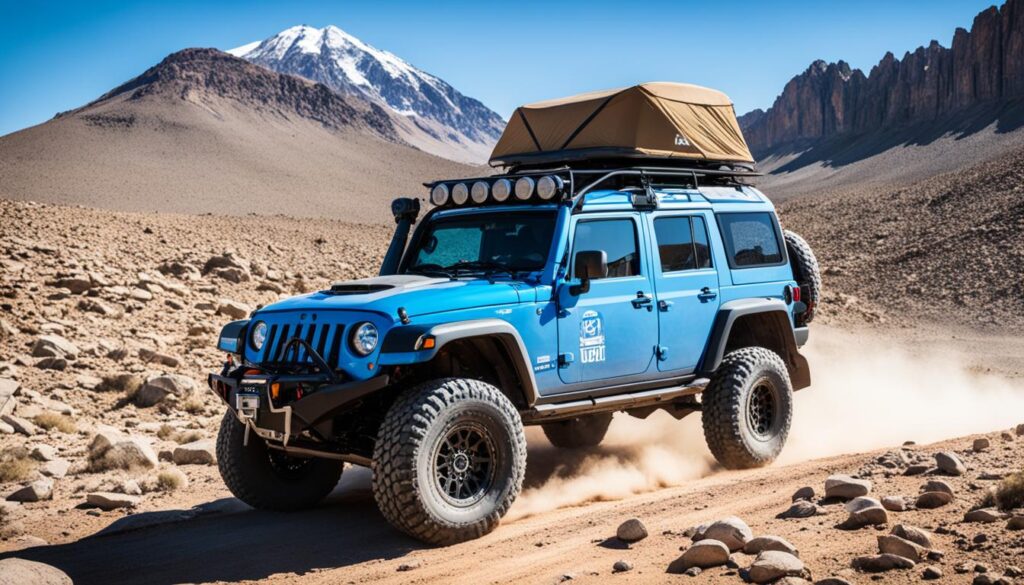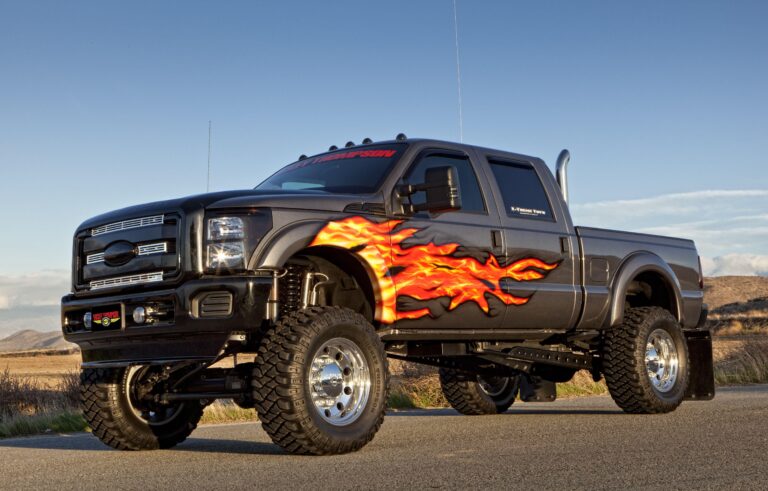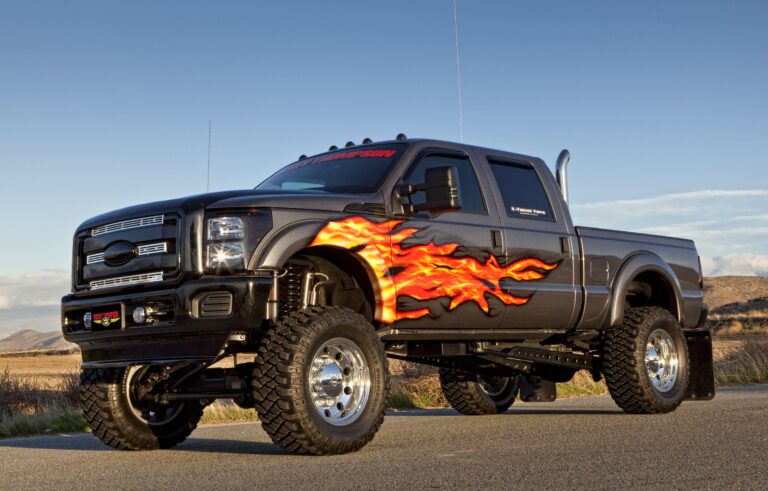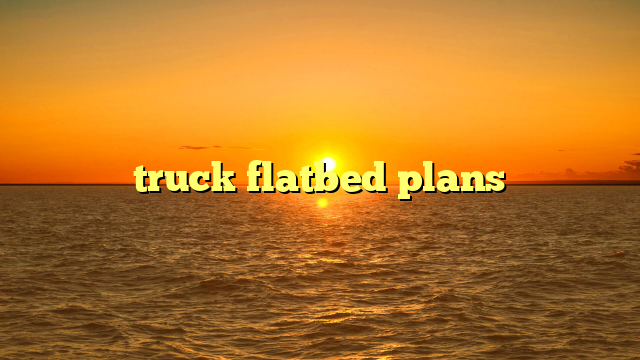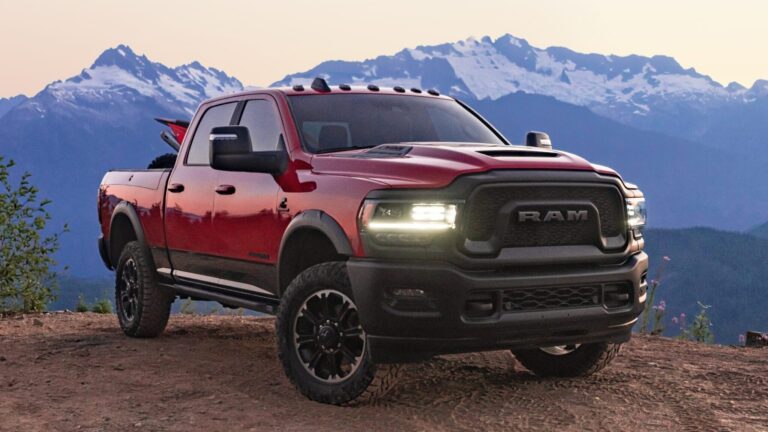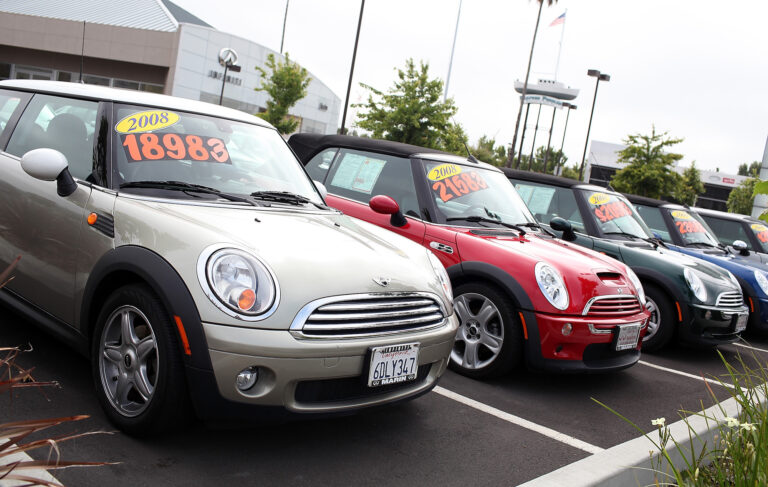Overlanding Trucks For Sale: Your Ultimate Guide to Finding Your Next Adventure Rig
Overlanding Trucks For Sale: Your Ultimate Guide to Finding Your Next Adventure Rig cars.truckstrend.com
The open road, untamed wilderness, and the thrill of self-reliant travel – this is the essence of overlanding. Far more than just off-roading, overlanding is about journeying to remote destinations, often for extended periods, where your vehicle isn’t just transportation but a mobile basecamp. At the heart of every successful overlanding expedition lies the right vehicle: a robust, reliable, and capable overlanding truck.
For aspiring adventurers, the quest for the perfect overlanding truck for sale can be both exciting and daunting. With a multitude of options, modifications, and considerations, navigating the market requires careful planning and informed decisions. This comprehensive guide will equip you with the knowledge needed to identify, evaluate, and ultimately purchase the ideal overlanding truck to kickstart your adventures.
Overlanding Trucks For Sale: Your Ultimate Guide to Finding Your Next Adventure Rig
What Makes a Truck "Overlanding Ready"?
While almost any 4×4 can go off-road, an overlanding truck is specifically engineered or modified for sustained, self-sufficient travel across diverse terrains. Key attributes differentiate an "overlanding ready" vehicle from a standard pickup:
- Robust 4×4 Drivetrain: Non-negotiable for tackling varied terrain. Look for low-range gearing, locking differentials (front/rear/center), and durable axles.
- Enhanced Ground Clearance: Essential for clearing obstacles like rocks, logs, and deep ruts without damaging undercarriage components.
- Heavy-Duty Suspension: Designed to handle significant weight (gear, fuel, water, roof tents) and absorb punishment from rough roads, offering improved articulation and ride comfort.
- Reliable Engine & Drivetrain: A proven engine with adequate power for climbing and carrying loads, and a transmission built for endurance. Simplicity and global parts availability are often preferred for remote travel.
- Payload Capacity: Often overlooked, this is critical. An overlanding truck must safely carry all your gear, water, fuel, people, and vehicle modifications without exceeding its Gross Vehicle Weight Rating (GVWR).
- Extended Fuel Range: Larger fuel tanks or auxiliary fuel carrying solutions are vital for reaching remote areas where fuel stations are scarce.
- Integrated Storage Solutions: Secure, organized storage for recovery gear, spare parts, tools, camping equipment, and provisions. This might include truck bed systems, roof racks, and interior organizers.
- Recovery Points & Gear: Front and rear recovery points are essential. A winch, recovery straps, shackles, and a hi-lift jack are standard equipment for self-recovery.
- Protection: Skid plates for vital underbody components (engine, transmission, transfer case, fuel tank) and rock sliders to protect rocker panels from damage.

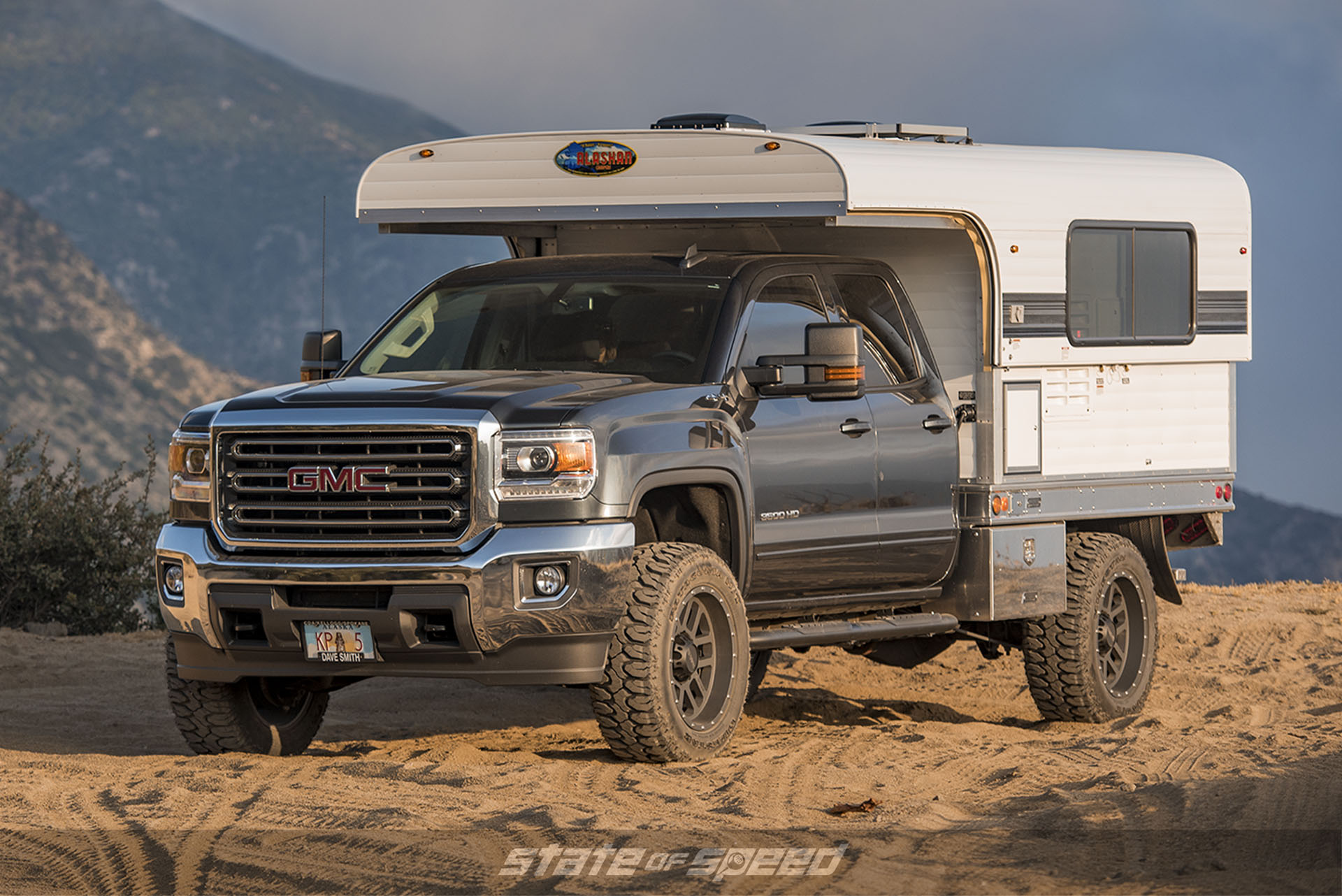
Types of Overlanding Trucks Available
The market for overlanding trucks for sale is diverse, ranging from highly modified factory vehicles to custom-built expedition rigs. Understanding the categories can help narrow your search:
-
Mid-Size Pickups:

- Examples: Toyota Tacoma, Jeep Gladiator, Chevrolet Colorado/GMC Canyon, Nissan Frontier.
- Pros: Excellent maneuverability on tight trails, strong aftermarket support, good fuel economy compared to full-size, often more affordable.
- Cons: Limited payload and interior space compared to full-size, can feel cramped for multiple occupants on long trips.
- Ideal For: Weekend warriors, couples, or solo travelers exploring moderate to challenging trails.
-
Full-Size Pickups:
- Examples: Ford F-Series (F-150, F-250), Ram 1500/2500, Chevrolet Silverado/GMC Sierra 1500/2500.
- Pros: High payload capacity, powerful engines, spacious cabins, ample room for truck bed campers or extensive build-outs, comfortable on long highway stretches.
- Cons: Larger footprint can be challenging on narrow trails, lower fuel economy, often more expensive to modify extensively.
- Ideal For: Families, long-term travelers, or those requiring significant gear capacity and comfort.
-
Purpose-Built Overland Vehicles & Vans:
- Examples: EarthRoamer, Sprinter/Transit conversions, Unimogs, custom expedition vehicles on commercial truck chassis.
- Pros: Unmatched off-road capability (for dedicated builds), superior comfort and livability, often designed for extreme self-sufficiency, huge interior space (vans).
- Cons: Extremely high purchase price and operating costs, large size can limit trail access, specialized maintenance.
- Ideal For: Serious long-term expeditions, those prioritizing luxury and extreme capability, or commercial/family use.
-
Classic/Vintage 4x4s:
- Examples: Toyota Land Cruiser (FJ40, 60, 80 series), Land Rover Defender, Mercedes-Benz G-Wagen (older models).
- Pros: Timeless appeal, legendary reliability (especially Land Cruisers), often simpler mechanics, strong community support, can appreciate in value.
- Cons: Lack modern comforts/safety features, can require more frequent maintenance, parts availability can be an issue for very old models, rust concerns.
- Ideal For: Enthusiasts, those seeking a project, or travelers prioritizing simplicity and heritage.
Where to Find Overlanding Trucks For Sale
The hunt for your ideal rig can lead you to various platforms:
- Specialty Online Marketplaces:
- Expedition Portal (ExPo) Forum Classifieds: A premier destination for finding fully built or lightly modified overland rigs. Sellers often include detailed build sheets and photos.
- Facebook Marketplace/Groups: Numerous dedicated overlanding, 4×4, and specific vehicle model groups (e.g., "Tacoma Overland Builds For Sale") are active.
- Craigslist/Local Classifieds: Can yield hidden gems, but require careful vetting.
- Online Auction Sites (Bring a Trailer, Cars & Bids): Occasionally feature well-preserved or custom 4x4s.
- Dealerships:
- New Car Dealerships: For purchasing a base vehicle (e.g., new Tacoma TRD Pro) to build yourself.
- Used Car Dealerships: Can sometimes have stock 4x4s, but rarely purpose-built overlanding rigs.
- Specialty Overland Builders/Resellers: Some companies specialize in building and selling new or pre-owned custom overland vehicles (e.g., EarthRoamer, Patriot Campers, or smaller local fabricators). These often come with warranties and professional installations.
- Word of Mouth & Networking: Attend overland events, join local 4×4 clubs. The community is often eager to help or sell their well-loved rigs.
Key Considerations When Buying an Overlanding Truck
Purchasing an overlanding truck is a significant investment. Keep these factors in mind:
- Budget: Beyond the purchase price, factor in registration, insurance, immediate maintenance, and planned modifications. A cheaper base vehicle might become expensive if it needs extensive repairs or upgrades.
- Intended Use & Terrain: Are you planning weekend trips on graded fire roads, or multi-month expeditions across continents? Your desired level of self-sufficiency and the types of terrain you’ll encounter will dictate the necessary vehicle capabilities and modifications.
- Condition & Maintenance History (Especially for Used): Demand detailed service records. A well-maintained stock vehicle is often better than a poorly maintained, heavily modified one. Check for rust, especially on the frame and common trouble spots.
- Existing Modifications: Evaluate the quality of existing mods. Were they installed by reputable shops? Are they suitable for your needs? Poorly installed aftermarket parts can cause more problems than they solve. Sometimes, a stock vehicle is a better starting point if you have specific build plans.
- Payload Capacity: Reiterate this! Calculate the weight of passengers, fuel, water, food, camping gear, recovery gear, and all vehicle modifications (bumpers, winch, roof rack, tent). Ensure the total is well within the vehicle’s GVWR. Overloading is dangerous and can lead to premature component failure.
- Fuel Economy & Range: Longer trips in remote areas demand better fuel efficiency or greater fuel carrying capacity. Diesel engines often offer better range and torque, but fuel quality can be a concern internationally.
- Reliability & Parts Availability: For international travel, common vehicles with readily available parts (e.g., Toyota Land Cruisers, Hiluxes) are often preferred.
- Comfort & Livability: For long journeys, consider seat comfort, climate control, and interior space. A comfortable cabin reduces fatigue on long drives.
- Legality & Registration: Ensure any modifications are legal in your region. Some states have strict rules on vehicle height, tire size, and bumper designs.
Inspecting an Overlanding Truck For Sale
A thorough inspection is paramount, particularly for used vehicles or those with extensive modifications:
- Pre-Purchase Inspection (PPI): Always, always get a PPI by an independent, trusted mechanic who specializes in 4x4s or understands overlanding modifications. This is the single most important step.
- Undercarriage: Look for bent components, rust, leaks (oil, coolant, differential fluid), and signs of abuse (deep scrapes on skid plates, bent tie rods).
- Suspension: Check for worn bushings, leaking shocks, cracked coils/leaf springs, and proper alignment. Ask about the suspension components’ age and load rating.
- Drivetrain: Test 4×4 engagement (high and low range), listen for unusual noises from differentials or transfer case, and check universal joints.
- Engine & Transmission: Look for leaks, listen for unusual noises, check fluid levels and condition. Ensure smooth shifting.
- Electrical System: Inspect wiring for aftermarket accessories. Look for clean, properly fused installations. Avoid vehicles with a "rat’s nest" of wires.
- Tires & Wheels: Check tire age, wear pattern (indicates alignment issues), and ensure a matching full-size spare is included.
- Documentation: Request all service records, receipts for modifications, and original vehicle manuals.
Tips for a Successful Purchase
- Define Your Needs Clearly: Before you even start looking, write down your priorities: budget, number of occupants, desired terrain, trip duration, and required features.
- Research Extensively: Dive deep into forums, watch YouTube reviews, and read articles about specific models you’re considering. Understand their common issues and strengths.
- Be Patient: The perfect rig might not appear overnight. Don’t rush into a purchase.
- Don’t Be Afraid to Walk Away: If something feels off, or the seller isn’t transparent, move on. There will always be another truck.
- Negotiate Wisely: Be prepared to negotiate the price, especially for used vehicles.
- Factor in Post-Purchase Costs: Beyond the purchase price, budget for insurance, initial maintenance, any immediate repairs, and further modifications you plan to add.
- Join the Community: Online forums and local clubs are invaluable resources for advice, troubleshooting, and finding vehicles for sale.
Price Table: Estimated Costs for Overlanding Trucks
It’s crucial to understand that prices for overlanding trucks for sale vary wildly based on make, model, year, condition, mileage, existing modifications, and market demand. This table provides estimated ranges to help you budget. "Build-Out Cost" refers to modifications like suspension, tires, bumpers, roof racks, and camping setups.
| Vehicle Type | Examples | Base Vehicle Price Range (Used/New) | Estimated Build-Out Cost Range (DIY/Professional) | Total Estimated Cost Range | Pros | Cons |
|---|---|---|---|---|---|---|
| Mid-Size Pickups | Toyota Tacoma, Jeep Gladiator, Chevy Colorado | $20,000 – $60,000+ | $5,000 – $30,000+ | $25,000 – $90,000+ | Agile, strong aftermarket, good entry point | Limited payload/space, can feel cramped |
| Full-Size Pickups | Ford F-150/250, Ram 1500/2500, GMC Sierra | $25,000 – $80,000+ | $10,000 – $50,000+ | $35,000 – $130,000+ | High payload, powerful, spacious, comfortable | Large footprint, lower fuel economy, more expensive mods |
| Purpose-Built Vans | Mercedes Sprinter, Ford Transit (4×4) | $40,000 – $100,000+ | $20,000 – $100,000+ (complex builds) | $60,000 – $200,000+ | Standing room, stealth camping, large interior | Limited true off-road capability (often), complex builds |
| Classic/Vintage 4x4s | Toyota Land Cruiser (80-series), Land Rover Defender | $15,000 – $70,000+ (restored) | $5,000 – $40,000+ (restoration/mods) | $20,000 – $110,000+ | Iconic, reliable, simpler mechanics, heritage | Age-related issues, lack modern comforts, parts for some |
| Extreme Expedition Rigs | EarthRoamer, Unimog, Custom Builds | $150,000 – $1,000,000+ | Built-in (cost is part of purchase) | $150,000 – $1,000,000+ | Ultimate capability, luxury, self-sufficiency | Extremely high cost, very large, specialized maintenance |
Disclaimer: These are broad estimates. A low-mileage, meticulously maintained, and heavily modified vehicle will command a much higher price than a high-mileage, basic model. DIY builds can significantly reduce costs compared to professional installations.
Frequently Asked Questions (FAQ)
Q1: What’s the "best" truck for overlanding?
A1: There is no single "best" truck. The ideal choice depends entirely on your specific needs, budget, trip duration, terrain, and number of passengers. Toyota Tacomas and Land Cruisers are often cited for their reliability and aftermarket support, but full-size trucks offer more space and payload, while vans offer interior comfort.
Q2: Should I buy a new or used overlanding truck?
A2:
- New: Offers reliability, warranty, and you can build it exactly how you want. Higher initial cost, and you might hesitate to modify it extensively.
- Used: More affordable, can find pre-built rigs, and less worry about minor scratches. Requires more thorough inspection, potential for hidden issues, and modifications might not perfectly align with your vision.
Q3: How much does a "ready-to-go" overlanding truck cost?
A3: As seen in the table, a decent "ready-to-go" mid-size truck can start around $30,000 – $50,000 (used base + basic mods), but can easily exceed $80,000 – $100,000+ for newer, more extensively built full-size trucks or custom vans. Extreme expedition rigs cost significantly more.
Q4: Do I need a custom-built overlanding truck, or can I modify a stock one?
A4: You absolutely do not need a custom build to start. Many overlanders begin with a stock 4×4 and add essential modifications like all-terrain tires, a robust suspension lift, a roof rack, and basic recovery gear. Custom builds are for those with specific, often extreme, requirements or a larger budget.
Q5: What are the most essential modifications for an overlanding truck?
A5: Prioritize:
- All-Terrain/Mud-Terrain Tires: Appropriate for your expected terrain.
- Heavy-Duty Suspension: Matched to your vehicle’s weight and intended use.
- Recovery Gear: Winch, straps, shackles, shovel, traction boards.
- Underbody Protection: Skid plates, rock sliders.
- Improved Lighting: Auxiliary lights for night driving off-road.
- Secure Storage: For gear, water, and fuel.
Q6: How important is payload capacity for overlanding?
A6: Extremely important. Overloading your truck negatively impacts handling, braking, suspension components, and overall safety. Always know your vehicle’s GVWR and stay within its limits. Many beginners underestimate the weight of their gear, water, fuel, and modifications.
Q7: Can I overland in a 2WD truck?
A7: While possible for very light trails and well-maintained dirt roads, a 2WD truck will severely limit your capabilities and access to truly remote or challenging terrain. 4×4 is highly recommended for genuine overlanding.
Conclusion
The journey to finding the perfect overlanding truck for sale is an adventure in itself. It requires careful research, a clear understanding of your needs, and a keen eye for detail. Whether you opt for a nimble mid-size pickup, a spacious full-size rig, a comfortable van conversion, or a classic 4×4, remember that the right vehicle is an investment in countless unforgettable experiences. By prioritizing reliability, capability, and suitability for your intended travels, you’ll ensure your chosen overlanding truck becomes a dependable partner on the path less traveled, transforming dreams of exploration into tangible realities. Happy hunting, and may your future adventures be grand!
